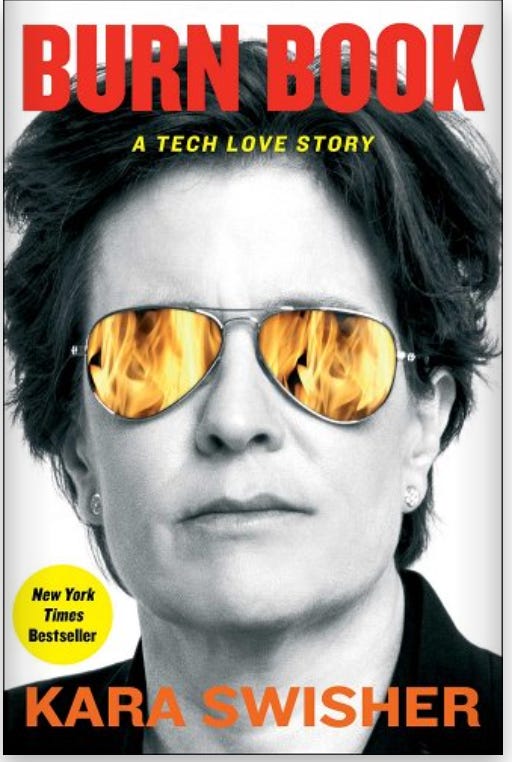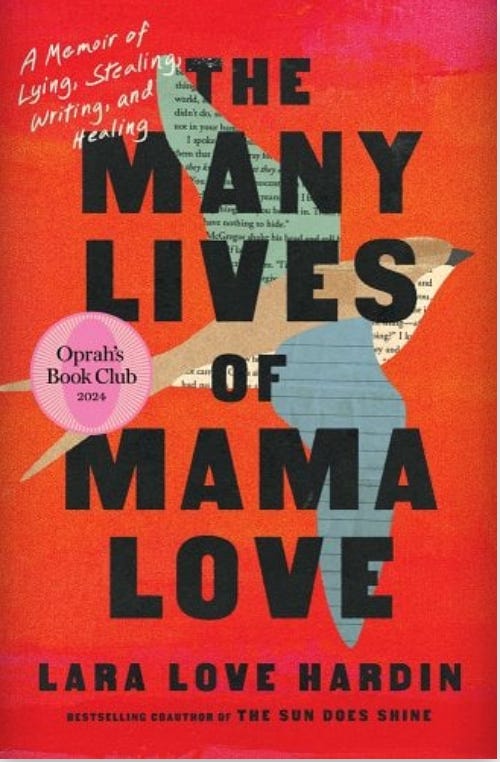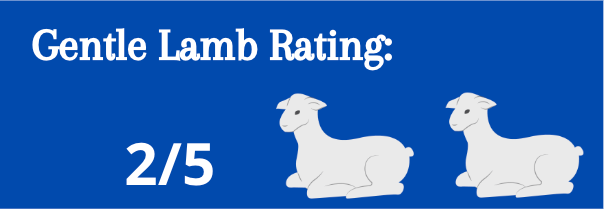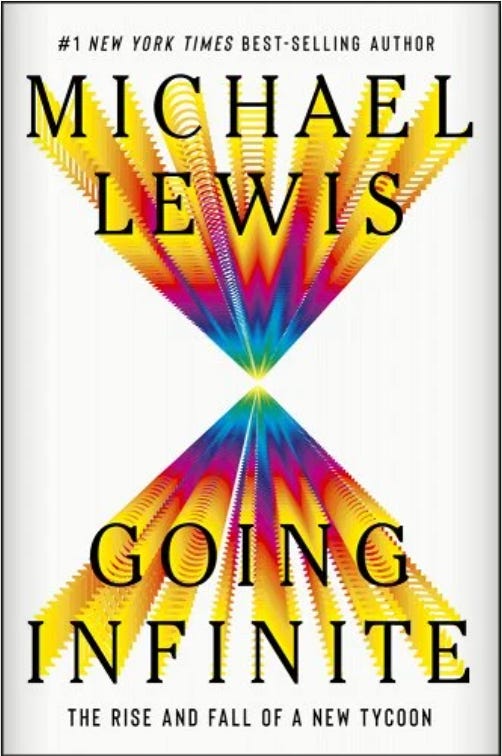Love Them or Leave Them? Some Buzzy Nonfiction & Memoirs
Yes, I know. It's about time. YWR #146
Fully 75% of my reading and recommending in any given year is fiction. Much to many of your dismay, who delicately suggest, “yes, that romantic fiction suggestion is most, ah, amusing, but do you have anything for adults?”
I want to share more non-fiction suggestions, my serious reading rhubarbs. I want to fulfill your every heart’s desire.
It’s just that much of my joy in reading is in relating to people. Yes, I also like to know about ideas, and history, and sometimes (OK, rarely) concepts – but really, it’s the stories of people that stick with me, that are thought-provoking, that stoke empathy.
I know Erik Larson et al are out in these streets doing God’s narrative non-fiction work about important topics and people. But also, you can just be merrily minding your own business when, WHAM, you get stuck in a framework book where the author is flexing how much they know whilst padding out their chapters with repetitive anecdotes. Or even worse, the current trend of non-fiction and biographies that include Every. Single. Nugget of Data, No Matter How Arcane or Truly Irrelevant. (Did we need to know what Balanchine’s grandmother’s cooking style was, J Homans? I submit – perhaps no.)
TREAD CAREFULLY, is what I’m saying. Fortunately for you, and less fortunately for me, I’ve read some good, bad, and ugly nonfiction and memoirs lately. So read on for my takes: the good, the okay, and the “should this have had another year of research?”
Yes, I Liked Them
The Hungry Season follows one woman, Ia, from her childhood in Laos, through life as a young woman bearing eight children in a Thai refugee camp, to settling in Fresno and her grueling, against-all-odds life as a rice farmer.
Why You’ll Like It: What a gift it is, a book that introduces us (me) to something and someone who is new to us (me!). This puts a deeply human face on political violence in Laos, on the immigrant experience, on farming, on the clash between old ways of living and modern prospects.
Plus, while Ia is both appealing and inspiring (entrepreneurial, funny, resilient), Hamilton doesn’t shy away from how brutal and precariously hard her life is.
Why You Might Not: The first third of the book is a little slow-going. It’s all recollection, so there’s of course very little dialogue and for me was some work, despite being quite interesting. It picks up once Hamilton meets Ia as an adult.
But its unusual lens and compelling subject make this a “yes, try it!” for me.
Do we need a reminder about what these lambs are up to? Yes, fine - learn about the unique and important Gentle Lamb Diagnostic Scale HERE.
If this doesn’t immediately speak to you, just scroll to the next selection. No need to comment snidely.
Okay, are the rest of us here?
It’s hugely important that you know that And Don’t F&%k It Up is opulence - it owns everything.
Why You’ll Like It: The cover says it all: an oral history of the first 10 years of RuPaul’s Drag Race. And God help me, your girl j’adores an oral history. Amongst my most preferred formats. Plus, this tackles ALL the controversies and open questions a fandom could want. Kudos to the interviewees, mama. For spilling.
Why You Might Not: Does it go far enough critiquing the show or RuPaul (who is certainly one of the most important figures in queer history and culture)? It does not. Did I really care? A million times, no. Plus the title is so cringe.
I Mean, Maybe
Welcome to Burn Book, Kara Swisher’s (mostly) unsentimental overview of the influential (mostly) men in technology, and her life amongst them.
Why You’ll Like It: Entertainingly voicey - you can’t deny that she’s Swaggering Cowboy Swisher. No punches pulled. Also, she hits the most important memoir lever which is to NAME NAMES (Musk, Bezos, Zuck, etc) and not worry about the consequences. If you’ve never heard these stories, you’ll likely be entertained.
Why You Might Not Like It: This felt like a first draft submission to me. Was she trying to paint portraits of flawed men-children? Was she trying to write a reflective memoir? Has she ever, in her justifiably lauded career, ever gotten it wrong or regretted anything she did? This book will not fully answer any of these questions!
Why You’ll Like It: Many intelligent and learned people up to and including Oprah (and my friend Joanna) loved The Many Lives of Mama Love. The author’s story, about her addiction, crimes, incarceration, and how she turned her life around is both fresh but also heartbreakingly universal.
Why You Might Not Like It: While the author is very candid, and her story is pretty remarkable, I found her a little too self-congratulatory. Maybe she should be! Also, the writing is pedestrian. You’re reading this for the redemption story, not its literary merits.
SKIP IT
Michael Lewis.
Was Going Infinite, about crypto exchange FTX and Sam Bankman-Fried, really your best work on the topic? How do you think this dish turned out?
Why You’ll Like It: It’s .. readable? And Sam Bankman-Fried is quiiiite a character.
Why You Might Not Like It: … everything else. It’s like Michael Lewis rushed to get a “Michael Lewis” book out instead of actually just writing a good book. It’s a caricature of what it could have been.
This book was a straightforward timeline based primarily on access to SBF. What it needed:
More tension. It went from “thumbs up” to “DOJ” rilllll fast. No sense of growing distress.
A POV. The book has been critiqued as being too fond of his subject; I would have preferred it if Lewis would have fully defended him, even if I don’t agree with it. Or fully critiqued him. Or fixed a gimlet eye on the regulatory environment, or entrepreneurialism, or. … anything. It lacked any edge.
At least another year of perspective. It was too rushed.
It gives me no pleasure to report this to you but if I can save one reader …
Fine, Are You Happy Now, Non Fiction Readers?
JK JK. Honestly, I don’t know why I’m dunking on myself. You can find lots of non-fiction recommendations in the archive, a hopefully delightful place to browse and be inspired. And come back next week for who knows what genre! (No, really. Even I don’t yet know. We’ll find out together!)
As always, all links go to Bookshop.org, which supports indie bookstores. Weirdly I don’t know anyone who defaults to buying from Bookshop.org but maybe we all should, hmm?
Hey, thank you for reading and being here. It means a lot (blushes, ducks head.)














Number Go Up, by Zeke Faux, is what Infinite whatever should have been. Wildly readable, interesting, insightful, and “report-y”